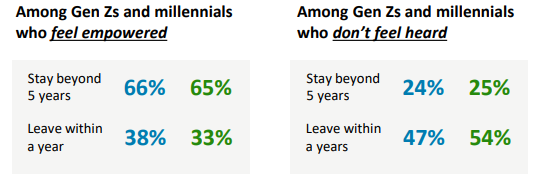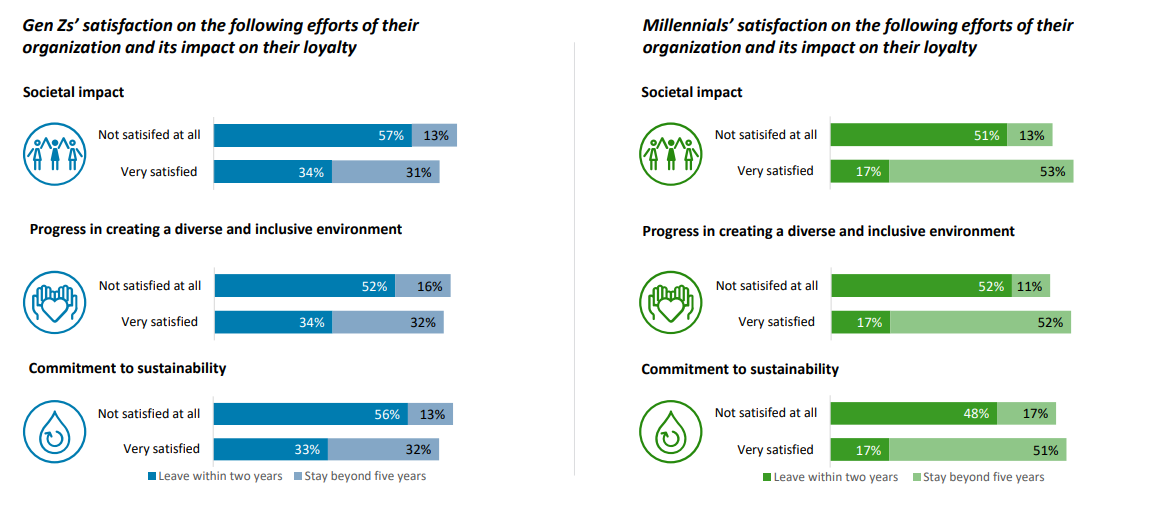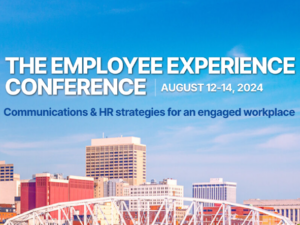This is what keeps Gen Z and millennials loyal to their employers, according to study
Empowering employees to drive change goes a long way toward fostering loyalty.

The past two and a half years have reminded communicators that a workforce is not a monolith — the way you reach one generation of employees can be radically different from how you engage another, requiring distinct channel considerations, upskilling opportunities and more. While not doing so can threaten employee retention during a time when voluntary job turnover has reached historic highs, staying mindful of these generational distinctions — and customizing the employee experience in kind — can go a long way.
Deloitte’s recently released “Global 2022 Gen Z and Millennial Survey” codifies the reasons why these generations of employees choose to stay or go, looking at the specific factors that drive their loyalty.
Chiefly, the survey found that empowering employees to drive change within their organizations is the most important factor to nurturing a sense of belonging and fostering loyalty. Of the 52% percent of Gen Z and millennials who said they felt empowered to drive change at work, a whopping 89% of Gen Z and 90% of millennial employees said they felt a sense of belonging.
“When people feel their voices are heard, they tend to feel more connected and loyal to their organizations,” the survey’s authors write.
That tracks alongside the finding that 65% of Gen Z and millennial employees who feel empowered said they stay beyond five years at a company, while just 25% said they would stay that long if they did not feel heard.

“Life is too short to be doing something you don’t enjoy. I want to be doing work that is making a difference to people’s lives, not just admin or theoretical work,” one respondent named Matt told Deloitte. “I’d like to think that the Great Resignation might lead to more serious commitments from senior leaders to adapt to the way Gen Zs and millennials work, and provide real support, not just lip service…I’d like to see my employer give younger professionals a seat at the table through things like reverse mentoring, shadow boards etc. Other generations need to be listened to and given a proper voice.”
Matt’s frustrations are supported by several additional study findings. Thirty-seven percent of Gen Z respondents and 36% of millennials said they rejected a job or assignment based on personal ethics, while nearly half (46%) of each demographic in senior positions said the same. These numbers underscore Matt’s words about doing work that makes a difference.
“Those who are satisfied with their employers’ societal and environmental impact, and their efforts to create a diverse and inclusive environment are more likely to want to stay with their employer for more than five years,” write the study’s authors.

Matt’s words about more serious commitments from leaders around how Gen Z and millennials work are also reflected in the study’s finding that 75% of Gen Z respondents and 76% of millennials would prefer a hybrid or remote working pattern. His words about giving younger professionals a seat at the table, meanwhile, is reflected in the finding that just 43% of Gen Z employees in junior positions say their organization seeks input from employees at all levels and incorporates their feedback (compared with 65% in senior positions) and 37% of millennials in junior positions agree (compared with 64% in senior positions).
“This suggests that organizations have work to do to ensure that all professionals feel empowered to speak up and drive change within their workplaces,” the study’s authors write. “Gen Zs want workplaces with less rigid hierarchies, where they feel they can speak openly with their employers, and where they can be part of shaping their workplace’s culture. Empowering people across an organization helps foster a more inclusive environment.”
Read the rest of the study here.







